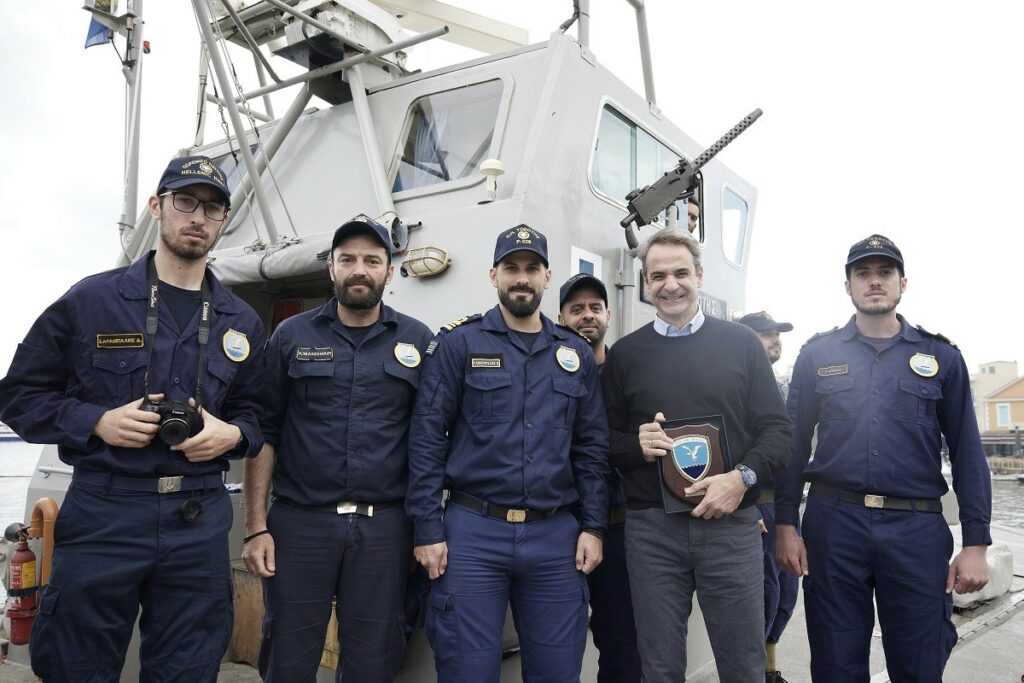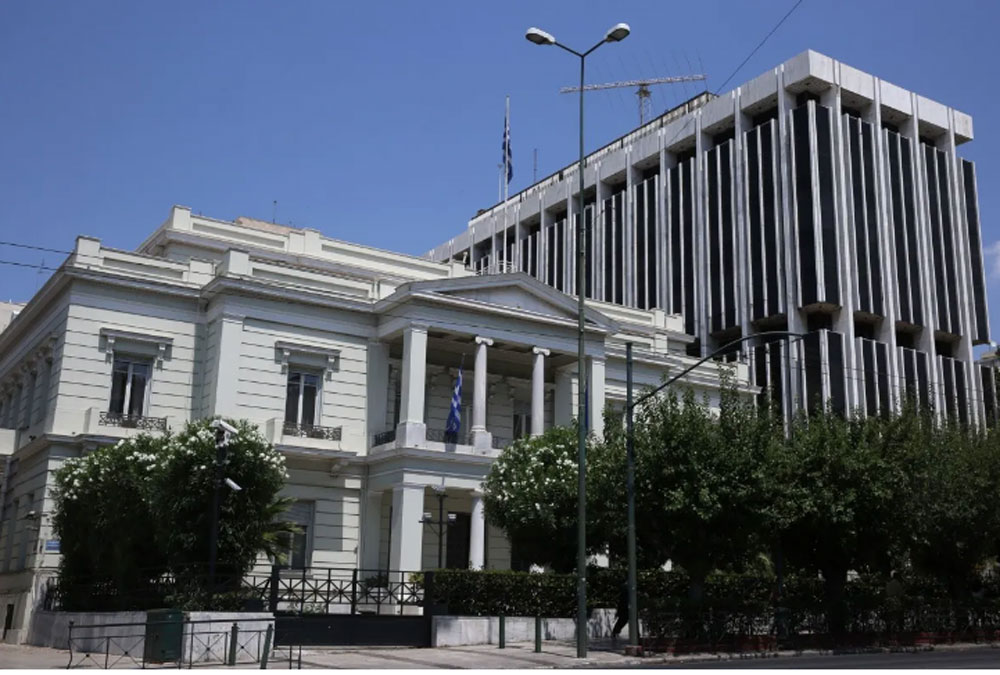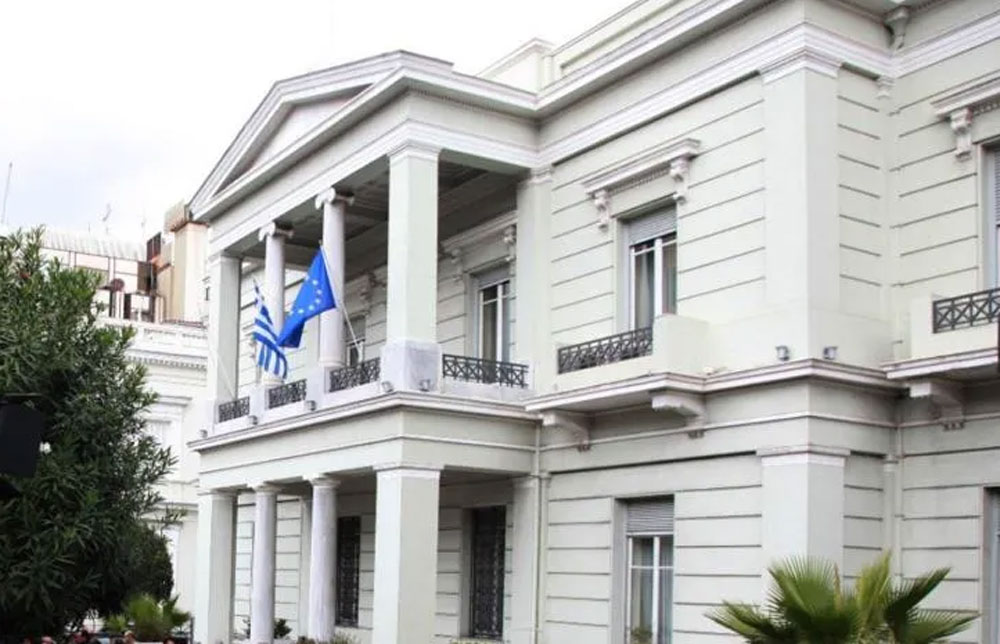
“The life of Harita Mandoles”: The woman that symbolizes the fight for the determination of the fate of the missing Cypriots
By Aristides Viketos, ANA–MNA
Today, in a heavily charged emotional atmosphere in the standing-room only amphitheater of the European University of Nicosia, we were witnesses to the presentation of the novel of Euridice Perikleous-Papadopoulou titled “TRULY SPOKEN- THE LIFE OF HARITA MANDOLES” (Nefeli Publications), which records the life of the woman that is the symbol in the struggle to determine the fate of the missing Cypriots from the time of the invasion of Cyprus by Turkey, in July 1974. Among the officials present was the Vice Minister of State of Greece, Mr. Terence Quick.
“Greece is here, Harita”, declared Mr. Quick, while addressing the heroic lady and noted that the book is actually the product of historical events and her own personal struggle: “Not only does it do honor and justice to the symbol that Harita Mandoles has become, but at the same time by recording the historical events presents a superb history lesson for future generations. The novel, a tour de horizon of the past 40 years, records the Turkish invasion, the violent uprooting of the local population, the execution of armless civilians, the missing and the refugees in their own land”. At the same time, Mr. Quick noted, one is witness to the force of the living, the hope for finding the missing, the return [of the refugees] back to their homeland and the meeting of justice in this long struggle.
The Greek Vice Minister declared that he came to Cyprus in order to honor “an astounding woman, who in spite of having lived in the worst of possible ways the nightmare of the Turkish invasion, she boldly stood up on her own feet and continues to fight to this day, so that justice is done”. He further quoted the Foreign Minister of Greece Nikos Kotzias, who two days previously had stated that one cannot consider the problem of Cyprus solved until the last Turkish soldier of the occupying force has left the island. “This message was sent one week before he was to visit Ankara”, he noted.
On the 21st of July 1974, while in an olive orchard outside her home village of Elia, Kyrenia District, Harita Mandoles and her sisters witnessed the cold blooded execution of her father Neophytos Damascenos, her husband Andrea S.Mandoles, and her two brothers in law, Theodore Achilleos and Phoebus K. Kyprianou. In spite of this horror, she was able through personal courage to save her little boy. Thirty two years later, when the roadblocks between the occupied area and the free Republic of Cyprus were lifted, she went to her village and pointed out to the Missing Persons Investigative Committee the place where the above executions took place. In 2008 the Committee returned to the families concerned just a few bones of their loved ones [a common practice since, indicative perhaps of massive reburials by Turkey so that the remains of the executed persons can never be found].
Of the officials present, the Metropolitan of Kyrenia Chrysostomos, the Minister of Education and Culture Costas Cadis, the Mayor of the occupied city of Karavas Yiannis Papaioannou, and the secretary of the association Free Kyrenia Yiannakis Shekersavvas, also briefly addressed the audience on the occasion.
There were also three talks regarding the book by Petros Papapolyviou, Associate Professor of Modern Greek History at the University of Cyprus, Christoforos Haralambakis, professor of Linguistics at the University of Athens, and Konstantinos Kasinis, professor of post-Byzantine and Modern Greek Literature also at the University of Athens.
The speakers stressed that the book is “exceptionally well written” and that it is “one of the best books written about the events of the Turkish invasion of 1974 and its consequences”.
Last, Ms. Harita Mandoles and the author, Ms. Euridece Papadopoulou-Perikleous spoke to a tearful audience that gave them a resounding standing ovation.
Harita Mandoles described briefly the tragic events that she suffered, on July 21st 1974, especially how she saved her son Yiannis, who was then only an infant: “My husband was murdered by the Turks, he fell down and they did not let me touch him to see if he was alive or dead, but my baby was on my husband’s neck, injured, with blood all over him and he was shouting “bam, bam, my dad”, he was looking all around with his little eyes popped out, he was not walking and the Turks would not let me hold him. I was shouting, I want my son, I want my baby, my baby, and the Turks were pushing me back. One Turk got tired of listening to me and grabbed the baby by his little hand and threw it away into the thorns. I fought for my son and I was able to get him; had I not fought for him, my son would have been just one more person on the missing list. This is why I say that we have to fight for our rights, we have to forgo our comfortable chairs and living room couches and come out into the streets, and go to the Presidential Palace and also shout that we want a just solution [to the Cyprus problem], liberation of our land, because our roots are over there, mine are in my village of Elia, in Karavas, in Orka, in our Kyrenia”.
The author Euridece Papadopoulou-Perikleous, who in 2005 was honored with the State Book Prize, stated that in the person of Harita Mandoles one sees the disaster of war the world over. “In this sense, the character of this tragic person assumes an ecumenical dimension. The individual suffering becomes collective and encompasses all of humanity”, she noted.

